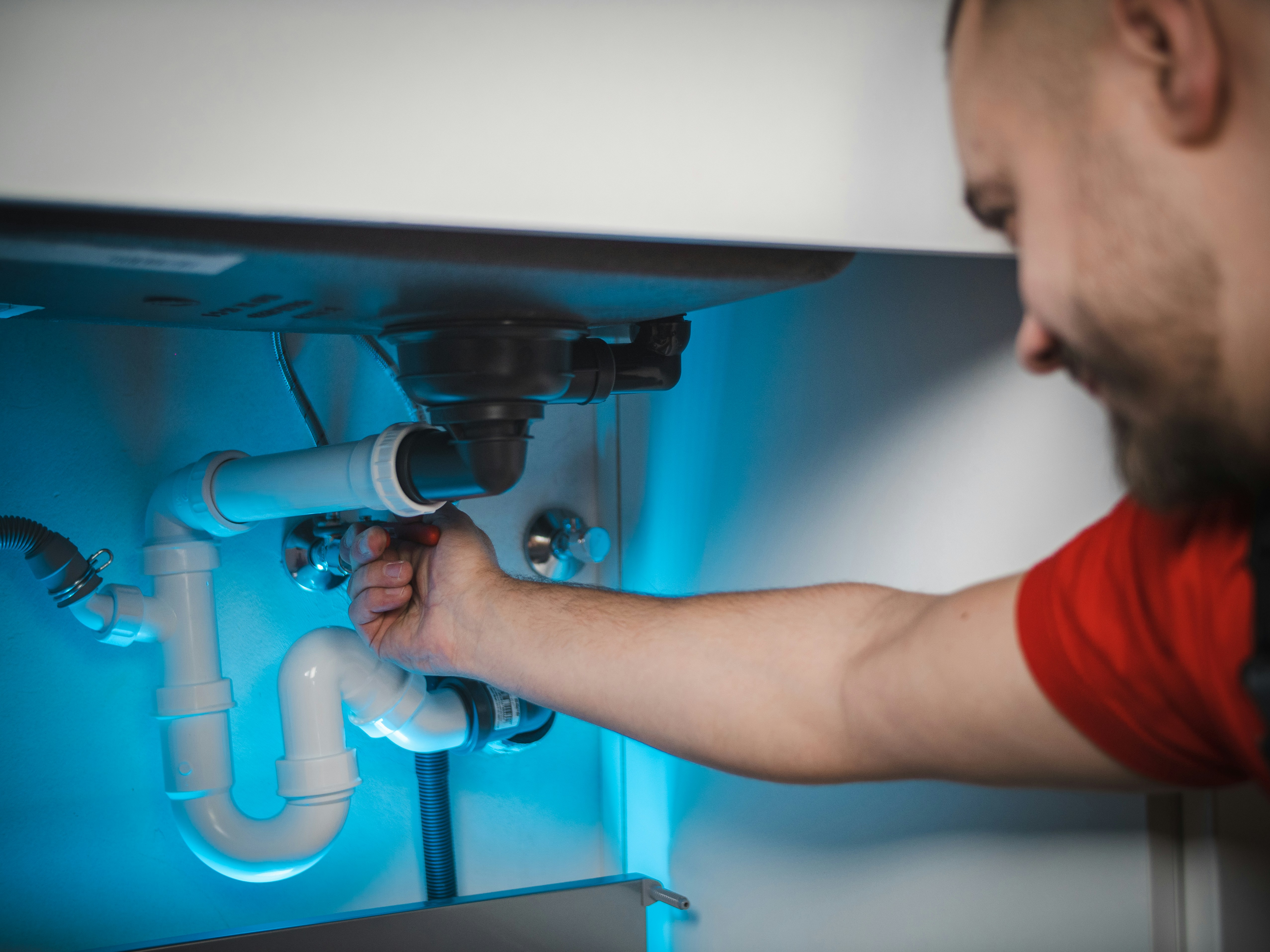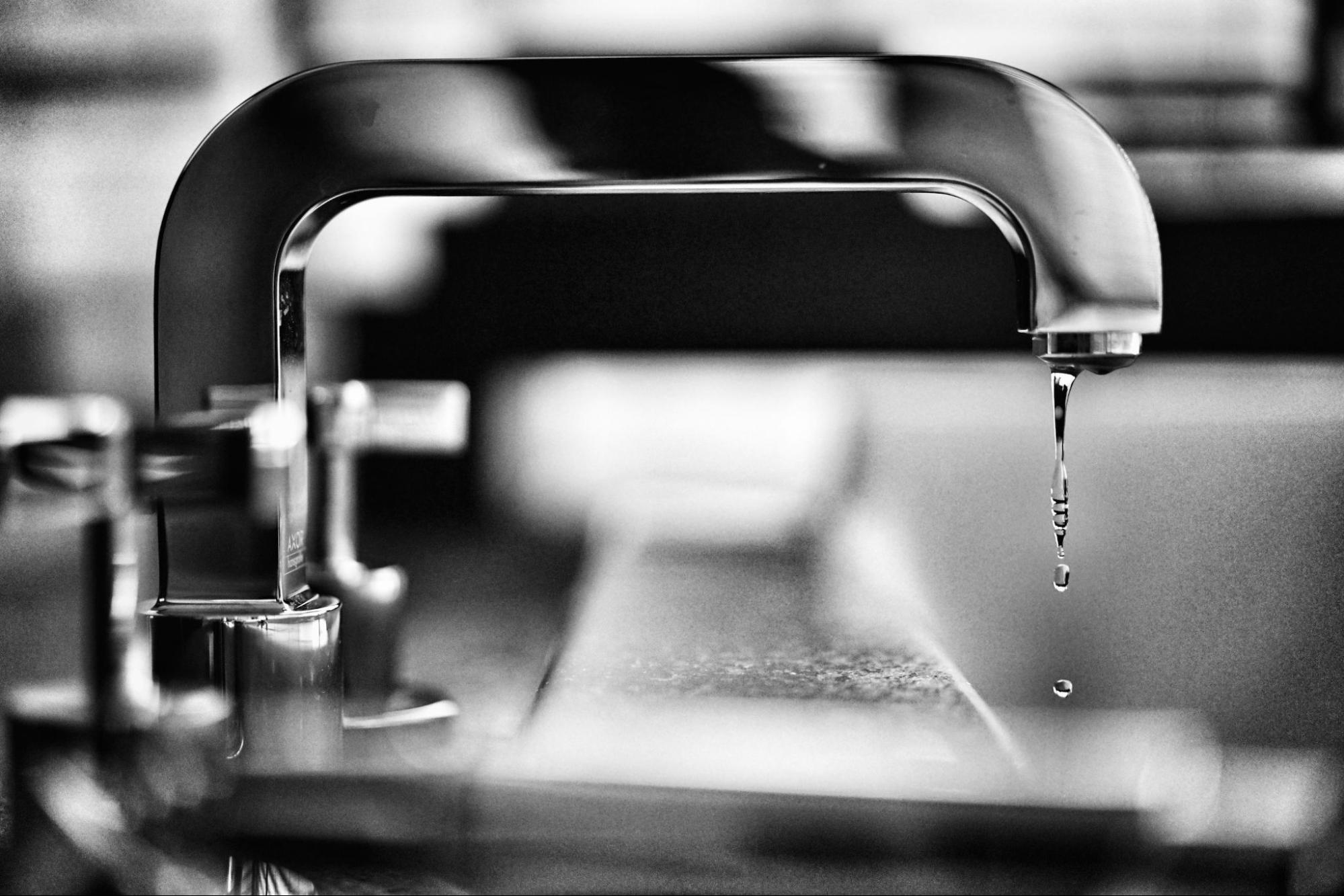
Learn how to prevent costly plumbing issues like leaks and clogs. Discover key maintenance tips to keep your home safe and efficient.
A leaking faucet, a clogged drain, or a running out of steam water heater can be expensive — and often, it could have been avoided. In this article, we reveal to you the mistakes we encounter most often among our customers... and how you can avoid them, without stress or unpleasant surprises.
1. Ignore small leaks
Why it's a problem:
A slow leak may seem harmless, but it often causes invisible damage: mold, wood rot, increased water bills.
What we see on the ground:
- Dark spots under a sink
- Wavy ceiling
- Toilet seal that oozes
How to avoid:
- Visually inspect risk areas every month (under the sink, behind the dishwasher)
- Call in a pro as soon as a leak is detected — repairing early is 5 to 10 times cheaper than repairing the damage.
2. Postpone replacing a water heater
Why it's a problem:
Beyond 10 years (or 12 with perfect maintenance), the risk of breakage increases drastically. A tank that breaks in can cause major damage in a few minutes.
What we see on the ground:
- 20-year-old water heater still in use “because it heats up well”
- Slow leaks initially ignored
How to avoid:
- Check the date of manufacture (label on the tank)
- Replace preventively before 10 years
- Drain once a year to limit corrosion
3. Pouring grease down the sink
Why it's a problem:
The fat cools, solidifies, and sticks to pipe walls, creating stubborn plugs.
What we see on the ground:
- Blocked food after a big meal
- Fat accumulation combined with food leftovers
How to avoid:
- Pour the fat into a container (can) and throw it in the trash
- Clean the siphon regularly
4. Forget to turn off the water before a long trip
Why it's a problem:
In the event of a leak while you are away, water will flow until you return — damage guaranteed.
What we see on the ground:
- Basement flooded after dishwasher leak during vacation
- Warped wood floor
How to avoid:
- Close the main valve before leaving
- Purge the pressure by opening a faucet
- If absent for a long time in winter: drain the installation
5. Neglecting French drain maintenance
Why it's a problem:
A clogged or crushed drain no longer does its job: water accumulates against the foundations and ends up seeping in.
What we see on the ground:
- Basements flooded after heavy rains
- Mold on foundation walls
How to avoid:
- Have the drain inspected every 5 to 10 years (camera)
- Clean with a jet or by hydrocuring if necessary
6. Using too many chemical unblockers
Why it's a problem:
These products can damage pipes and are dangerous to handle.
What we see on the ground:
- Melted or weakened pipes
- Irritant fumes in the house
How to avoid:
- Use a suction cup or a mechanical ferret
- Call a plumber if the problem persists
7. Overload the waste shredder
Why it's a problem:
Even sturdy, a shredder can get stuck or break its blades with hard or fibrous foods.
What we see on the ground:
- Device stuck after celery peels
- Motor burnt out due to overload
How to avoid:
- Avoid bones, shells, fibrous foods
- Run cold water during use
90% of plumbing emergencies could be avoided with a minimum of prevention.
If you spot a sign of wear and tear, act early: a call today will save you from a major construction site tomorrow.
Are you unsure about the condition of your installations? Contact Plumberial for quick inspection, repair, or replacement. Free quote and fast service throughout Greater Montreal.


